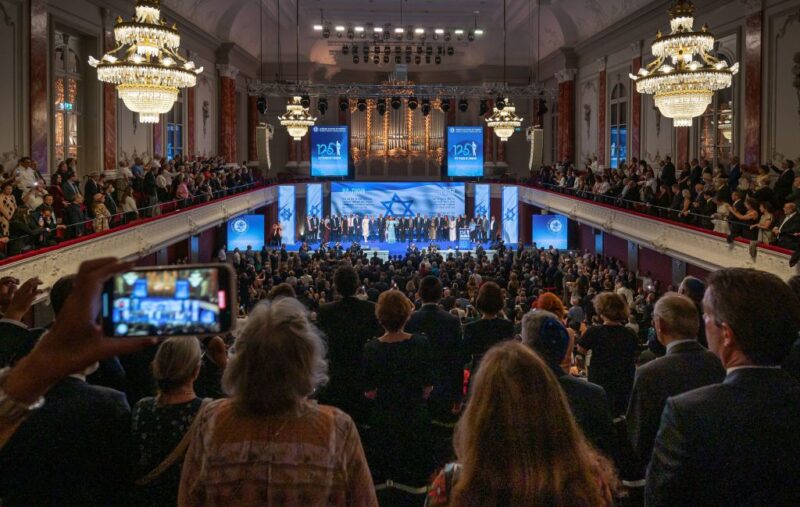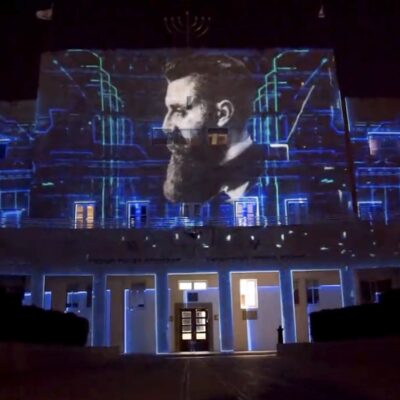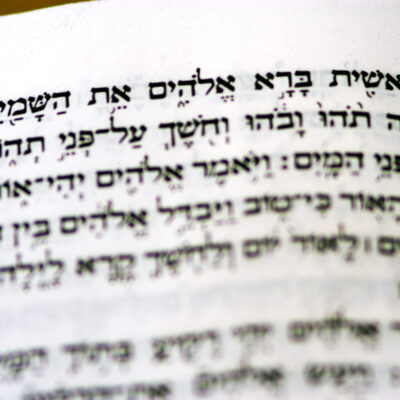What You Should Know
Supreme Court issues limited penalties after WZC elections marred by fraud

Guests sing the Israeli national anthem at the end of a gala to mark the 125th anniversary of the First Zionist Congress at Basel's historic Stadtcasino where Theodor Herzl convened the first congress which paved the way towards establishing the State of Israel, in Basel, on August 29, 2022. (Photo by Fabrice COFFRINI / AFP) (Photo by FABRICE COFFRINI/AFP via Getty Images)
There are those who consider the World Zionist Congress and the related so-called National Institutions — the World Zionist Organization, Jewish Agency for Israel, Jewish National Fund-Keren Kayemeth LeIsrael and Keren Hayesod — to be anachronistic. They were, after all, created in the days before the foundation of the State of Israel, when only such semiofficial bodies could represent the Jewish People and its dreams of a national homeland.
Today, critics ask, when such a nation-state exists, why should a nongovernmental body like JNF-KKL control a sizable portion of the land of Israel or oversee immigration, as the Jewish Agency does? Should these not be the domain of a democratically elected government?
Such questions are certainly legitimate and warranted, but throwing out such institutions would eliminate one of the few venues through which rank-and-file Jews from around the globe can influence events in Israel. Every five years, 525 delegates are selected from around the world to the congress, just over one-third from Israel, just under one-third from the United States and the rest from everywhere else.
Those delegates control an annual budget of roughly $1 billion — coming from JNF-KKL’s aforementioned land holdings, philanthropic funds and service fees — that can be used to build infrastructure projects in Israel, create and run programs around the world and support a range of partner organizations. Ordinarily, such powers only rest in the hands of wealthy donors and the executives that run them. The WZC effectively gives them to any Jewish adult at the cost of $5 (the fee paid to vote in the elections).
As readers of eJewishPhilanthropy will know well, this was one of those years, with elections held in the U.S. from March 10 to May 4.
Yet only now, nearly four months after the polls closed, are the votes being certified due to the widespread irregularities and suspected fraud that plagued this year’s election. More than 10% of the total votes cast have been rejected on technical grounds or, in most cases, on suspicion of intentional fraud. In some cases, the majority of the votes that slates received were deemed fraudulent.
At the end of last week, the Zionist Supreme Court — the ultimate judicial authority in the world Zionist movement — issued a series of rulings on these widespread irregularities. Read more about the rulings below.
Though they expressed dismay at the rampant voter fraud, the judges largely limited their punishments for the slates involved to monetary fines and harsh words, rather than disqualifications and loss of delegates. This was based on their belief that such measures were undemocratic and stripped good-faith voters of their right to vote for the party of their choice. Some slates disagreed with these rulings, seeing them as permitting fraud with minimal consequences.
In any case, going forward, the American Zionist Movement will have its work cut out for it to convince the American Jewish public of the integrity and significance of its elections. This year saw nearly 240,000 votes cast in the elections, representing both a record high and a small fraction of the potential voting public.
At a time when the relationship between Israel and world Jewry is simultaneously strengthening in the wake of the Oct. 7 attacks and the global rise in antisemitism and also growing increasingly fraught, the World Zionist Congress offers a rare venue for practical dialogue — but only if people trust in it.











